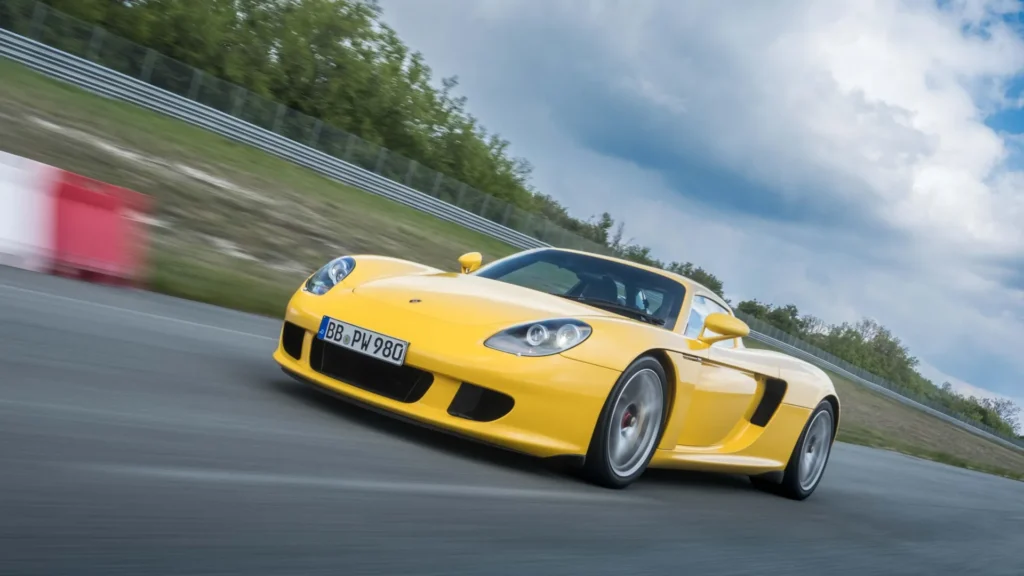Porsche has infused its iconic 911 with advanced hybrid technology derived from its Le Mans-winning 919 race car. Debuting in the facelifted seventh-generation ‘992’ model, the new petrol-electric system, dubbed T-Hybrid, arrives alongside revised styling, a more potent base Carrera, and an updated cabin.
The heart of the update is the T-Hybrid system, pairing a new 3.6-litre twin-turbo six-cylinder engine with a gearbox-mounted electric motor and lithium-ion battery. This setup debuts in the Carrera GTS, churning out a combined 534 HP (398 kW) and 610 Nm (448lb-ft) of torque. A significant 45 kW and 40Nm (29 lb-ft) leap over its non-hybrid predecessor.
Porsche claims a 0 to 100km/h sprint time 0.4 seconds quicker at 3.0 seconds flat, a 0 to 200km/h time 1.1 seconds faster at 10.5 seconds, and a bumped top speed of 312km/h (194 mph).
An eight-speed dual-clutch automatic transmission is expected to be the sole gearbox option, replacing the 911 GTS’ previous seven-speed manual.
Despite the added performance, kerb weight increases by just 50 kg to 1595kg (3516lb). Positioned up front, the battery placement subtly improves weight distribution to 37.3% front and 62.7% rear.
Porsche claims the T-Hybrid shaves 8.7 seconds off the 911 Carrera GTS’ Nurburgring lap time, achieving a new best of 7 minutes and 16.93 seconds.
The T-Hybrid (Turbo Hybrid) system features a Borg Warner-produced turbocharger with a heat energy recuperation system, harvesting up to 11 kW (15 hp) of electricity from exhaust gases under load. This efficiency allows Porsche to integrate a compact 1.9kWh battery that doesn’t require external charging.
“We produce the energy on board. It always recuperates – under acceleration, during braking and on a trailing throttle. Even at the 312km/h top speed, we continue to store kinetic energy in the battery,” Porsche 911 project leader, Frank Moser, said.
The T-Hybrid will be available in both rear-wheel drive and all-wheel drive configurations, encompassing the entire 911 GTS range (coupe, convertible, and Targa).
Aerodynamic revisions include new active front air ducts that adjust based on cooling needs, additional air ducts mounted inboard, and a reworked front bumper integrating radar and ultrasonic sensors. The rear boasts new OLED taillights, a revised spoiler, and a reworked diffuser.
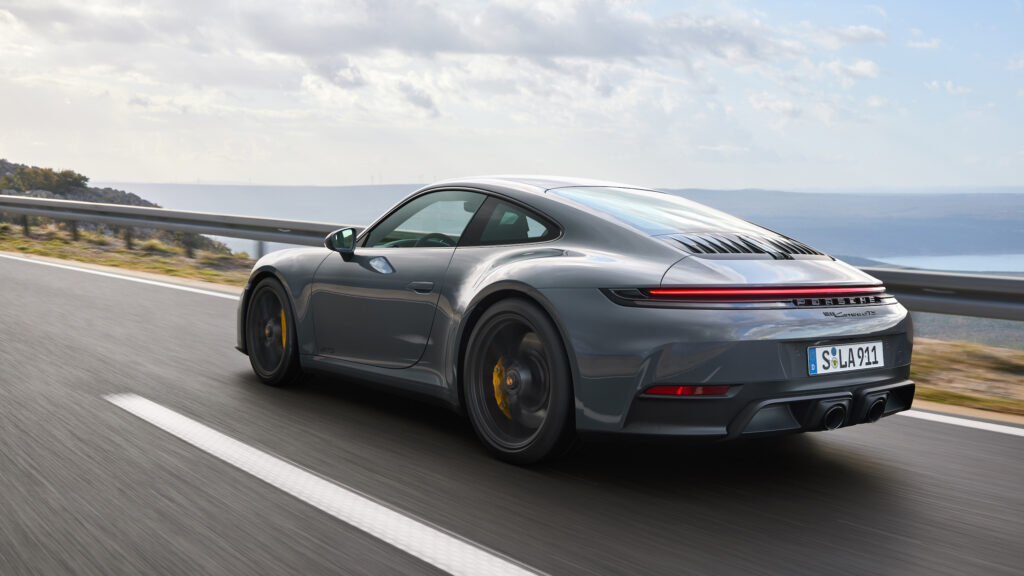
An optional Aerokit generates 10kg of downforce at the 312 km/h (194mph) top speed, compared to the standard model.
Rear-wheel steering is now standard on the 911 GTS, while an anti-roll stabilisation system runs off the hybrid’s battery pack.
Alongside the GTS, Porsche has confirmed the entry-level 911 Carrera will retain its 3.0-litre twin-turbo six-cylinder engine, now with upgraded turbochargers and a larger intercooler to develop 389 hp (290 kW) and 450 Nm.
Inside, the central change is the axing of the analogue tachometer and dual digital instrument screens in favour of a 12.6-inch curved display.
The 10.9-inch infotainment touchscreen gains new functions, video streaming is available when the car is parked, the wireless phone charging tray is now cooled, and the engine is now started with a button, rather than a simulated turn-key.
Pricing for the 2025 Porsche 911 in South Africa
911 Carrera – R2,477,000
911 Carrera Cabriolet – R2,746,000
911 Carrera GTS – R3,386,000
911 Carrera GTS Cabriolet – R3,654,000
911 Carrera 4 GTS – R3,546,000
911 Carrera 4 GTS Cabriolet – R3,814,000
911 Targa 4 GTS – R3,814,000
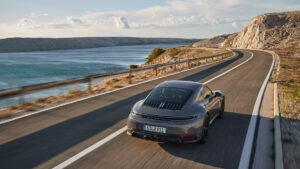

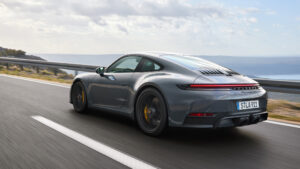
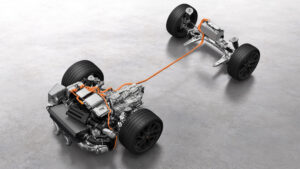
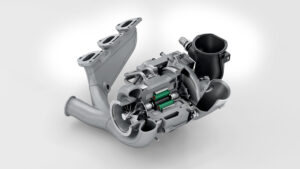
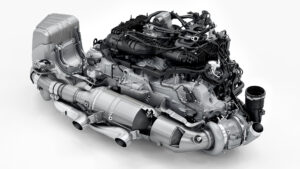
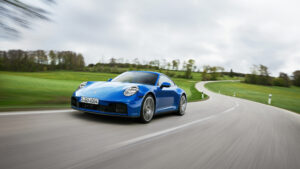
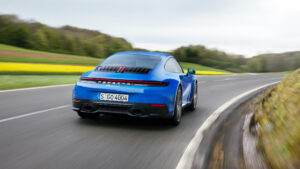
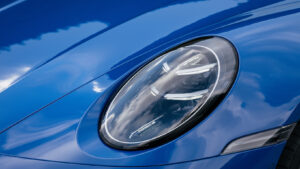
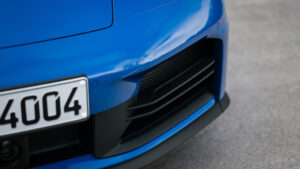
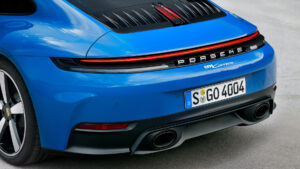
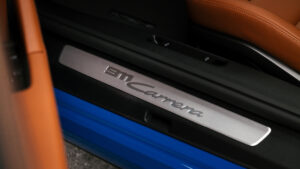
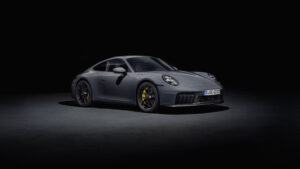
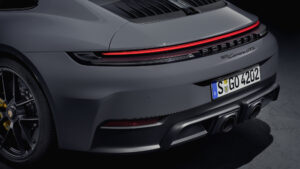
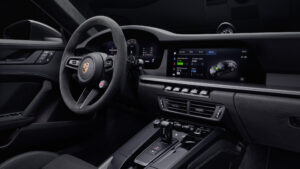
![]()



